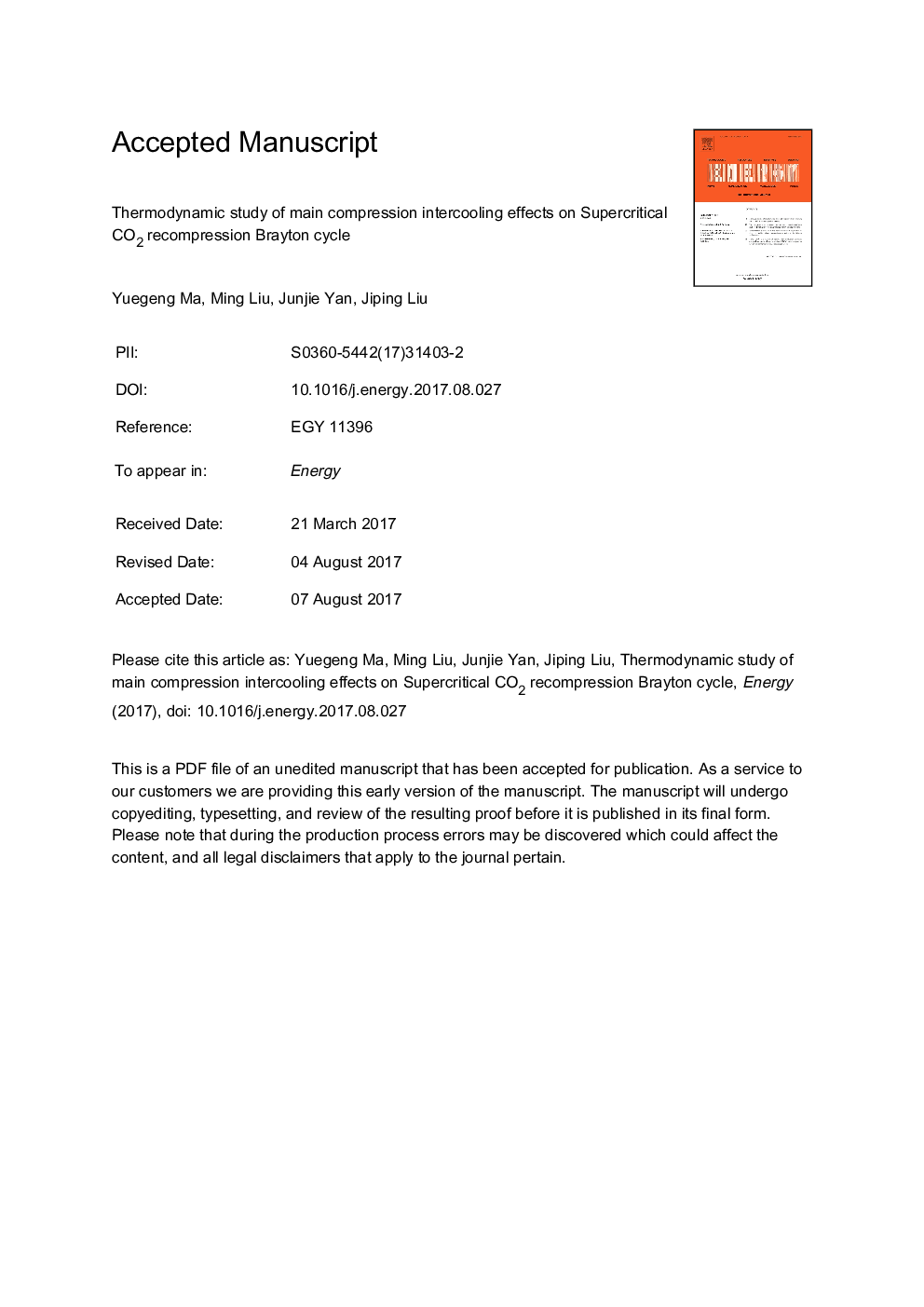| Article ID | Journal | Published Year | Pages | File Type |
|---|---|---|---|---|
| 5475447 | Energy | 2017 | 24 Pages |
Abstract
Supercritical CO2 recompression Brayton cycle has emerged as a promising power cycle for various types of power conversion systems. In order to seek further performance improvement of supercritical CO2 recompression Brayton cycle, thermodynamic effects of main compression intercooling (MCIC) are investigated in this work. Mathematical models were developed for Supercritical CO2 recompression Brayton cycle with MCIC. Two key variable parameters, i.e., compressor pressure ratio and pressure ratio distribution between two main compression stages (represented with RPRMC,1), were optimized. Effects of working conditions on MCIC effects and the optimized parameters were investigated. A comprehensive comparison between cycles with and without MCIC was performed in four typical conditions from both design and off-design viewpoints. Results show that RPRMC,1 is more predominant to cycle efficiency than compressor pressure ratio. 2.65% efficiency improvement can be obtained by the integration of MCIC in the reference conditions. The variations of working conditions impact MCIC effects on cycle efficiencies. The optimized results of compressor pressure ratio and RPRMC,1 are affected by the variation of minimum temperature, maximum temperature and maximum pressure. In addition to cycle efficiency improvement, the integration of MCIC also shows potentials in costs saving and cycle robustness improvement.
Keywords
Related Topics
Physical Sciences and Engineering
Energy
Energy (General)
Authors
Yuegeng Ma, Ming Liu, Junjie Yan, Jiping Liu,
